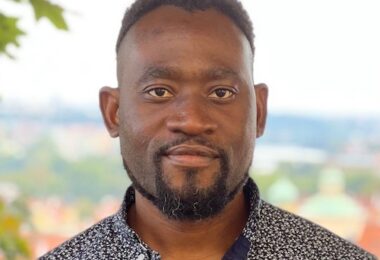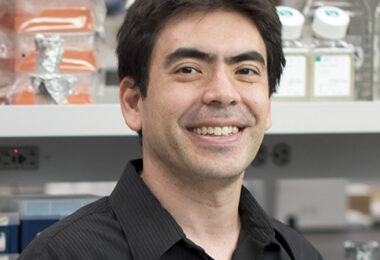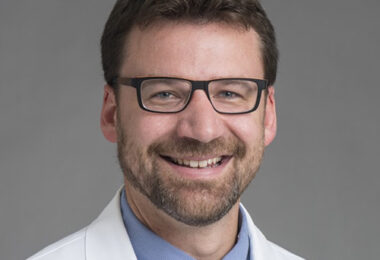The Hinterleitner lab is interested in the fascinating yet complex events happening in our intestines every day. They are trying to understand the crosstalk between intestinal microbes, diets and the host mucosal immune system.


The Hinterleitner lab is interested in the fascinating yet complex events happening in our intestines every day. They are trying to understand the crosstalk between intestinal microbes, diets and the host mucosal immune system.

The Jackson lab explores unknown molecules, sensory pathways and cellular connections that underpin inflammation. They aim to uncover not only how tissue-wide homeostasis is achieved but also how its breakdown can be averted to prevent disease.

Dr. Bamidele is investigating metabolic mechanisms that reinvigorate the pathogenic functions of the adaptive immune system during IBD and how CD4 T cells perpetuate inflammation, with the therapeutic goal of restoring homeostatic balance.

The Al Nabhani Lab studies how microbe-immune interplay during weaning influences lifelong host health. They are generating new therapies to treat autoimmunity, obesity, intestinal inflammation and neurodegenerative disorders.

The Cadwell Lab investigates how our immune system is regulated by diverse infectious agents. They aim to apply this knowledge towards treating inflammatory diseases through restoring a balanced relationship between microbes and the immune system.

Dr. Swanson’s research focuses on understanding the mechanisms of intestinal barrier homeostasis that drive IBD, and how environmental factors like circadian misalignment and alcohol impact intestinal barrier permeability.

The Martens lab investigates the symbiotic microorganisms in the human gastrointestinal tract at multiple levels with the goal of using diet and gut microbial interventions to treat chronic conditions such as Inflammatory Bowel Disease.

Dr. Elson’s lab focuses on the regulation of mucosal immune responses, particularly the mucosal immune response to the microbiota, to define the cellular and molecular mechanisms that maintain mucosal immune homeostasis.

The Zhou lab studies tissue-level homeostasis and inflammation, and uses interdisciplinary approaches to understand how immune cells communicate with their neighbors and surrounding environment.

Dr. Belle’s lab aims to unravel the mechanisms behind intestinal mucosal inflammation to elucidate the interactions between pathways and cells involved in intestinal mucosal damage and repair and apply them to the development of novel therapeutics.